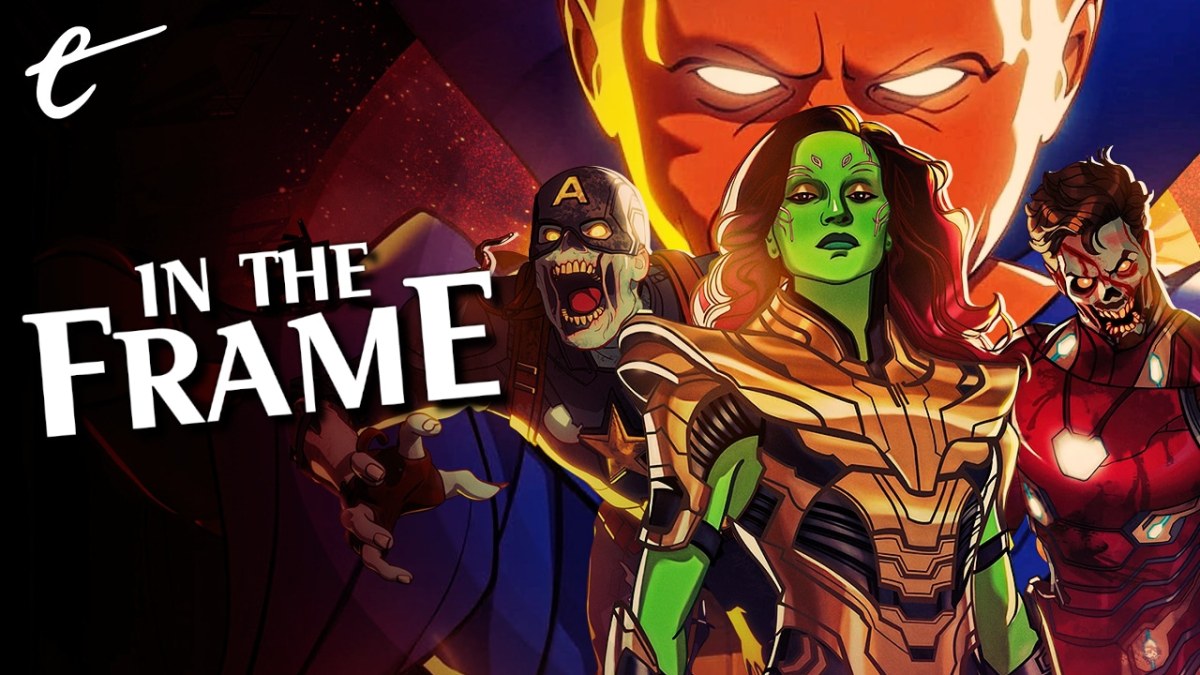With its first season wrapped up, What If…? demonstrates a frustrating issue with the modern Marvel Cinematic Universe (MCU), showcasing how the franchise measures a story’s “worth.”
What If…? initially presents itself as something similar to classic television anthologies like The Twilight Zone, with the Watcher (Jeffrey Wright) cast in the role of Rod Sterling’s narrator. In some ways, it was as much a love letter to classic television as the opening stretch of WandaVision. Each of the early episodes takes place in a universe that is similar to the continuity of the MCU, but with some minor divergence that has derailed events and led to a radically different outcome.
Some of these universes are radically different, like the one where Killmonger (Michael B. Jordan) rescued Tony Stark (Mike Wingert) from terrorists in Afghanistan, derailing the plots of both Iron Man and Black Panther. Some are pretty similar, where Peggy Carter (Hayley Atwell) ends up taking the supersoldier serum instead of Steve Rogers (Josh Keaton) and effectively speedruns her way through the plots of Captain America: The First Avenger and Captain America: The Winter Soldier.
The central appeal of What If…? is a sandbox of infinite potential that allows the creators to play out alternate takes on familiar events without having to worry about larger continuity or canon. Of course, some classic What If…? concepts proved so influential that they eventually made their way into comics continuity – like Mayday Parker as Spider-Girl, Jane Foster as Thor, or even Conan the Barbarian in the modern Marvel universe. Most, however, stand alone on their own merits.

However, as What If…? progressed, it became increasingly clear that the show was not content to be an anthology of standalone stories. Instead, these adventures were all building to one gigantic finale that would tie them all together. The finale, “What If… the Watcher Broke His Oath?”, imported characters and concepts from each of the prior adventures. It even leaned heavily on one episode that was cut from the season order due to COVID.
At the end of the season, the Watcher draws together a team that includes protagonists of earlier episodes like Killmonger and Peggy Carter, along with T’Challa as Starlord (Chadwick Boseman), a party-hardy Thor (Chris Hemsworth), and a corrupted Stephen Strange (Benedict Cumberbatch). Even episodes that didn’t provide protagonists got shoutouts, with the Marvel Zombies used as a weapon and the third episode’s universe without Avengers providing a home for Black Widow (Lake Bell).
In the end, everything in What If…? had a clear function. Everything was a piece of the puzzle just waiting to be assembled in such a way that it would function as part of the epic finale. The finale of What If…? went out of its way to reassure viewers that every episode of the show “mattered” and that it was all part of some larger plan. There were no loose ends. Nothing in the show was a waste of time or energy. Everything within the show had a purpose that it dutifully paid off.
To be fair, the production team consistently signaled that this was their approach. Head writer A.C. Bradley promised in pre-release interviews that “the events of What If…? are canon.” Producer Brad Winderbaum vowed that key characters would return. The mid-season trailer made a big deal of including shots of characters who had previously appeared in different episodes standing together, as if to assure viewers that these seemingly standalone stories were going somewhere.

There is something frustrating in what this says about modern pop culture and how audiences are expected to measure the value and the worth of a given story. It is no longer enough for a story to simply be fun or satisfying on its own terms; it has to exist as something larger in order to validate or justify its existence. The implication of the season finale is that anything that didn’t serve to set up the season finale would be a waste of the audience’s time and energy.
This gets at a broader trend in how the internet has taken to talking about media, particularly television. The recent season of Ted Lasso has attracted some internet backlash for featuring self-contained standalone episodes either built around Christmas or supporting characters like Coach Beard (Brendan Hunt). The standard line of criticism against these stories is that they are just “pointless filler” and that they serve no larger purpose in the grand scheme of the show.
This is part of a broader debate about television as a medium and the importance of an episode as a distinct unit of story. It’s notable that even beloved and highly serialized shows like Mad Men, Lost, The Sopranos, and Breaking Bad featured relatively self-contained episodes that didn’t necessarily advance the overarching narrative in a literal manner. Many fans will single out “The Suitcase,” “The Constant,” “Pine Barrens,” or “Fly” as among the best television episodes of this young century.
The best episodes of What If…? don’t need to be validated by being drawn into the finale. “What If… Doctor Strange Lost His Heart Instead of His Hands?” is a more compelling exploration of how grief and nostalgia can turn people into monsters in its 30 minutes than WandaVision is in its nine episodes. Similarly, the worst episodes are not redeemed. “What If… Thor Were an Only Child?” doesn’t become any funnier or better paced because its lead character appears in the season finale.

However, there is something more unsettling in the way that What If…? measures the value of its individual episodes by how they “matter” in relation to the season finale. It speaks to a culture that prioritizes plot as an end unto itself, one that treats media primarily as a narrative delivery mechanism, and quantifies the worth of that media by how much it advances the story and what it promises, rather than what it delivers on its own terms.
This is the school of critical thought that is obsessed with “plot holes” as objective proof of a piece of media’s flaws, and which insists that knowing even the most basic details of a piece of media before going in are “spoilers” that can ruin the experience. It is an approach that discounts the experience itself as something worth having, and that the plot is ultimately much less important than execution. It ignores that it’s not what a piece of media is about that matters, but “how it is about it.”
This forgets the key lesson of the early MCU. The first wave of Marvel Studios movies were built from the ground up, designed to invest the audience in the protagonists of Iron Man, Thor, and Captain America before bringing those heroes together in the crossover event of The Avengers. In May 2008, audiences didn’t go to Iron Man because they were planning to see The Avengers in May 2012. They went to The Avengers in May 2012 because they fell in love with Iron Man in May 2008.
Much has been made of the struggles that other studios have faced trying to emulate and replicate the success of the MCU. One of the more consistent problems facing these rival studios has been a tendency to prioritize the promise of the shared universe over the quality of individual stories within it. Universal seemed to expend more energy on its infamous Dark Universe photoshoot than it invested in making The Mummy a good film.

Recently, it seems like the MCU has forgotten what set it apart from many of its imitators. So much of the modern MCU is devoted to promising audiences that whatever they are currently consuming will be essential to appreciating the next thing. A big selling point for the Marvel shows on Disney+ was the promise that, unlike earlier television extensions of the shared universe, they would factor into forthcoming films. They are not sold on their own strength, but as things that will “matter.”
It feels like the opposite of how this should work. Audiences should care about the universe because they care about the characters; they should care about future films because they enjoyed previous films. Iron Man ended with a tease that its hero was “part of a bigger universe,” but that was buried in the credits, after the film had already won over the audience. It didn’t promise a delayed payoff; it promised more of what audiences enjoyed about this film.
What If…? demonstrates how much the MCU has changed in the intervening years. The worth of these stories isn’t measured by their individual quality. It’s instead measured by what they contribute to the bigger picture. Anything that can pay off down the line has value, no matter its flaws. Anything that exists on its own terms is a waste of time, regardless of how good it might be on its own terms. Continuity was a hook, but increasing it seems like a crutch.






Published: Oct 11, 2021 11:00 am